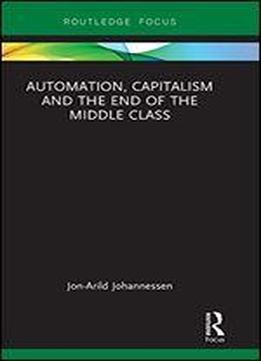

In books like The Haves and the Have-Nots (Basic Books, 2011) and Global Inequality (Belknap Press, 2016), he has traced the rise of inequality through a wide historical lens.Ĭapitalism, Alone is a continuation of Milanovic’s previous work on inequality, an ambitious, provocative examination of the political, social, and economic implications of capitalism’s ultimate triumph. As an academic, he has spent decades studying the effects of globalization and the changing global income distribution. Milanovic, an economics professor at the City University of New York Graduate Center and former lead economist in the World Bank’s research department (also, a ProMarket contributor), is one of the world’s leading thinkers on inequality. Both, he writes, are vulnerable to inequality, social unrest, and oligarchic rule. The world, writes Milanovic, is currently divided between two competing models of capitalism: liberal capitalism, represented by the US, and the sort of authoritarian capitalism best exemplified by China. The triumph of capitalism, however, has not been achieved through the utopian victory of democratic liberalism that had many in thrall back in the 1990s. Once upon a time, capitalism had to share the world with various feudal-like systems, and later it had to compete against communism, but now it stands uncontested as the world’s only mode of production. For the first time in history, he writes in his new book Capitalism, Alone, a single economic system rules the entire world. The problem with this narrative, says Branko Milanovic, is that capitalism is not in crisis-in fact, in his telling, it’s quite the opposite. Democratic presidential candidates Elizabeth Warren and Bernie Sanders have each proposed detailed plans that would remake (or restore) American capitalism, and even the CEOs of Business Roundtable are now trying to jump aboard the “crisis of capitalism” bandwagon. Inequality has reached historic proportions, more and more wealth and power are concentrated in fewer hands, and millions of outraged Americans-subjected to a system that rewards predatory behavior and allows monopolists and oligopolists to act with impunity-are purportedly turning to socialism. Since 2008, the view that capitalism is in crisis has become increasingly prevalent.

In an interview with ProMarket, CUNY Graduate Center economist Branko Milanovic discussed the differences and similarities between US-style and China-style capitalism and explained why, without major reforms, liberal capitalism could lead to plutocracy.


 0 kommentar(er)
0 kommentar(er)
